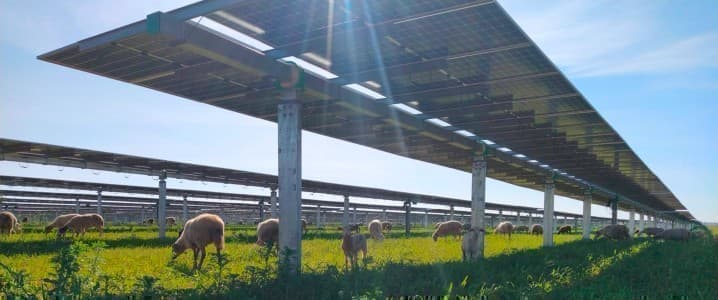Chile is perhaps better known for its copper, but the country has also recently emerged as a frontrunner in the energy transition with a veritable boom in solar installations. Now, the government is threatening these. It plans to temporarily remove one subsidy mechanism, and solar developers are not happy.
Like in other markets such as Europe and parts of the U.S., solar generators in Chile depend on government guarantees for certain prices, at which utilities must buy their electricity. However, it seems that these guarantees—effectively subsidies—along with other factors have driven the price of electricity for Chileans too high for the current government’s comfort. So, it wants to suspend the guaranteed minimum price payments for three years to continue subsidizing electricity.
The industry, understandably, was less than thrilled. Chile has seen its solar generation capacity boom in the past few years, set to reach 13.77 GW this year, up by close to 50% over 2023. So, once the subsidy suspension plan was first announced earlier this month, three solar developers’ associations “expressed concern” about the government’s intentions, saying that the plan “significantly alters the remuneration scheme of the PMGD by taking away, through an arbitrary mechanism, revenues from projects with investments already made.”
Related: Big Oil’s Carbon Credit Strategy Faces Scrutiny
Foreign investors drawn to Chile by its generous payment scheme for solar developers were also critical of the move. “You invest in Chile thinking that this is Latin America’s Switzerland,” David Crouch, managing partner of Aediles Capital, told Bloomberg. “This action sets a dangerous precedent.” Aediles Capital is one of the companies to be affected by the move and an entity set up to manage BlackRock energy assets in Chile.
“The proposed changes would have us immediately default on our covenants to our debt holders,” another solar developer executive said, as quoted by Bloomberg, in comments on the Chilean government’s move.
What these comments suggest is that the solar industry remains highly dependent on government subsidies for its profitability and even for its status as a going concern: Bloomberg noted in a report on the legislative changes that some wind and solar developers have gone into insolvency because of their exposure to the free market and no government subsidy net.
Supporters of the move say that it has oversaturated the market with solar developers and has pushed electricity prices higher—something that has happened in the European Union and the UK, too, as governments slap additional taxes on electricity in order to fund the expansion of wind and solar.
“We have identified a gap between the efficient cost of development and the income that a group of generators is receiving,” Energy Minister Diego Pardow told Bloomberg in response to questions about the planned change. “There is a space to contribute to the expansion of the subsidy.”
The subsidy Pardow refers to is a subsidy on electricity for households in a move that almost any government would take when its voters are faced with rising bills: keep those down. In this case, the move has pitted the government against investors who previously flocked to Chile because of the guaranteed income.
“Artificial intervention in the prices of electricity supply contracts awarded in public tenders has generated uncertainty and distrust among those who finance the development of energy projects in Chile, as it significantly affects the great distinguishing feature that sets Chile apart, legal and regulatory stability,” a coalition of three solar associations said earlier this month.
It is somewhat ironic, however. The developers are complaining because the government wants to take away their subsidies—suggesting subsidies are a negative, but only when given to someone else, in this case, low-income households. When the subsidies guarantee their own income, they are a great positive.
ADVERTISEMENT
By Irina Slav for Oilprice.com
More Top Reads From Oilprice.com
- China’s Oil Giant CNPC Looking for Acquisition Targets Overseas
- Aluminum Prices Defy Expectations
- Visualizing the Renewable Energy Landscape Across G20 Countries


















